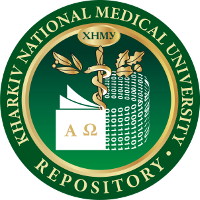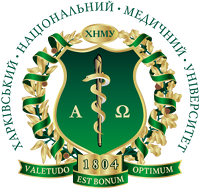Please use this identifier to cite or link to this item:
http://repo.knmu.edu.ua/handle/123456789/29554Full metadata record
| DC Field | Value | Language |
|---|---|---|
| dc.contributor.author | Ivannik, V. | - |
| dc.contributor.author | Torianyk, I. | - |
| dc.contributor.author | Moiseienko, T. | - |
| dc.contributor.author | Skliar, A. | - |
| dc.contributor.author | Yeromenko, R. | - |
| dc.contributor.author | Hnatiuk, V. | - |
| dc.contributor.author | Podrigalo, L. | - |
| dc.contributor.author | Nazaryan, R. | - |
| dc.contributor.author | Mikhailenko, Nina | - |
| dc.contributor.author | Gargin, V. | - |
| dc.date.accessioned | 2021-11-08T09:16:55Z | - |
| dc.date.available | 2021-11-08T09:16:55Z | - |
| dc.date.issued | 2021 | - |
| dc.identifier.citation | Antimicrobial Activity Derivatives 2H-pirano[2,3-c]piridines against Pathogens of Intestinal Yersiniosis / V. Yu. Ivannik, I. I. Torianyk, T. M. Moiseienko, A. I. Skliar, R. F. Yeromenko, V. V. Hnatiuk, L. V. Podrigalo, R. S. Nazaryan, N. M. Mikhailenko, V. V. Gargin // Journal of Pharmacy and Nutrition Sciences. – 2021. – Vol. 11. – P. 1–6. | en_US |
| dc.identifier.uri | https://repo.knmu.edu.ua/handle/123456789/29554 | - |
| dc.description.abstract | Background: An important aspect in the treatment of patients with intestinal yersiniosis is the administration of effective antibiotic therapy. Performed research aimed to determine the spectrum and level of antimicrobial activity of 2H-pyrano[2,3-c]pyridine derivatives on the museum and clinical strains of gram-negative microorganisms Yersinia enterocolitica. Methodology: The object of the study was 28 synthetic derivatives of 2H-pyrano[2,3-c]pyridine. The compounds were studied according to their chemical structure. Weused the method of serial dilutions in Muller-Hinton liquid nutrient medium with a museum’s and clinical strains of Y.enterocolitica. Results: Studies indicate the promise of further study of the properties of 2Hpyrono[2,3-c]pyridine to create an effective antimicrobial medicine. According to theresults of studies on action of antimicrobial compounds synthesized on the basis of 2H-pyrano[2,3-с]pyridine derivatives, it was found that the MIC of compounds for all Y. enterocolitica strains was 100.0 μg/ml. The MBCC of most cultures of Yersinia (72.3 %) was 200.0 μg/ml. Compound 2{3} had a pronounced antiyersiniotic activity, the inhibitory effect of which was manifested at a concentration of 25.0 μg/ml. Retarding the growth of most Yersinia strains (95.3%) with a MIC of 50.0 μg/ml, the MIC of compounds ranged from 50.0 to 200.0 μg/ml. After statistical data processing, pyridine derivatives (compounds 2{3} and 3{5}) were identified, possessing an effective bacteriostatic and bactericidal effect on Y. enterocolitica strains. Conclusions: The results of the research showed a high antimicrobial activity of 2Hpyrano[2,3-c]pyridine derivatives. The highest activity against Y. enterocolitica wasfound for 2-N2-arylimino-5-hydroxy-methyl-8-methyl-2H-pyrano[2,3-c]pyridine-3-N1-aricarboxamide derivatives. | en_US |
| dc.language.iso | en | en_US |
| dc.publisher | Journal of Pharmacy and Nutrition Sciences | en_US |
| dc.subject | Derivatives 2H-pirano[2,3-c]piridines | en_US |
| dc.subject | microorganisms | en_US |
| dc.subject | Yersinia enterocolitica | en_US |
| dc.subject | antimicrobial activity | en_US |
| dc.title | Antimicrobial Activity Derivatives 2H-pirano[2,3-c]piridines against Pathogens of Intestinal Yersiniosis | en_US |
| dc.type | Article | en_US |
| Appears in Collections: | Наукові праці. Кафедра стоматології дитячого віку та імплантології | |
Files in This Item:
| File | Description | Size | Format | |
|---|---|---|---|---|
| Gargin_JPANS.pdf | 765,7 kB | Adobe PDF |  View/Open |
Items in DSpace are protected by copyright, with all rights reserved, unless otherwise indicated.

